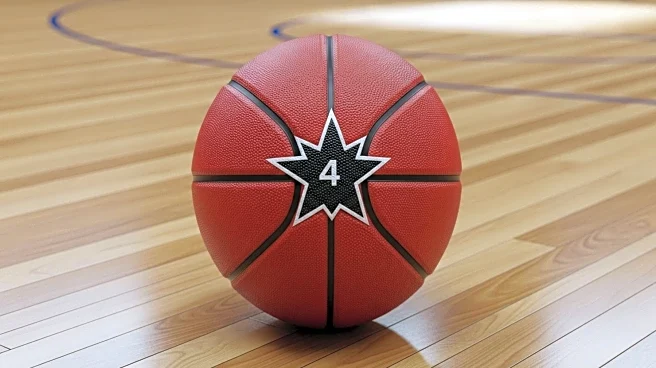What's Happening?
Abdou Toure, a 4-star forward, has committed to play basketball for the University of Arkansas. Toure cited Coach Cal's history and approach to player development as key factors in his decision. He expressed admiration for the coach's dedication to his players and the high-intensity practices that prepare athletes for professional careers, particularly in the NBA. Toure's commitment is seen as a significant addition to Arkansas's basketball program, which aims to enhance its competitive edge in collegiate sports.
Why It's Important?
Toure's commitment to Arkansas is a strategic win for the university's basketball program, potentially boosting its performance and reputation in NCAA competitions. The decision underscores the influence of effective coaching and player development in attracting top-tier talent. As Toure is a highly rated recruit, his presence could elevate the team's prospects in upcoming seasons, drawing attention from scouts and increasing the program's visibility. This move may also inspire other talented players to consider Arkansas as a viable option for their collegiate careers.
What's Next?
With Toure joining the team, Arkansas will likely focus on integrating him into their system and maximizing his potential. The coaching staff may adjust strategies to leverage Toure's skills, aiming for improved team performance in future tournaments. Additionally, Toure's development will be closely monitored as he transitions to collegiate-level play, with expectations of him contributing significantly to the team's success. The commitment may also influence recruitment strategies, as Arkansas seeks to build a robust roster around Toure.
Beyond the Headlines
Toure's decision highlights the broader trend of athletes prioritizing programs with strong developmental support and pathways to professional leagues. This shift may prompt other universities to enhance their coaching and training facilities to attract top talent. Furthermore, Toure's commitment could have cultural implications, as it reflects the growing importance of mentorship and player-coach relationships in sports. Such dynamics are increasingly recognized as crucial for athlete success and well-being.









